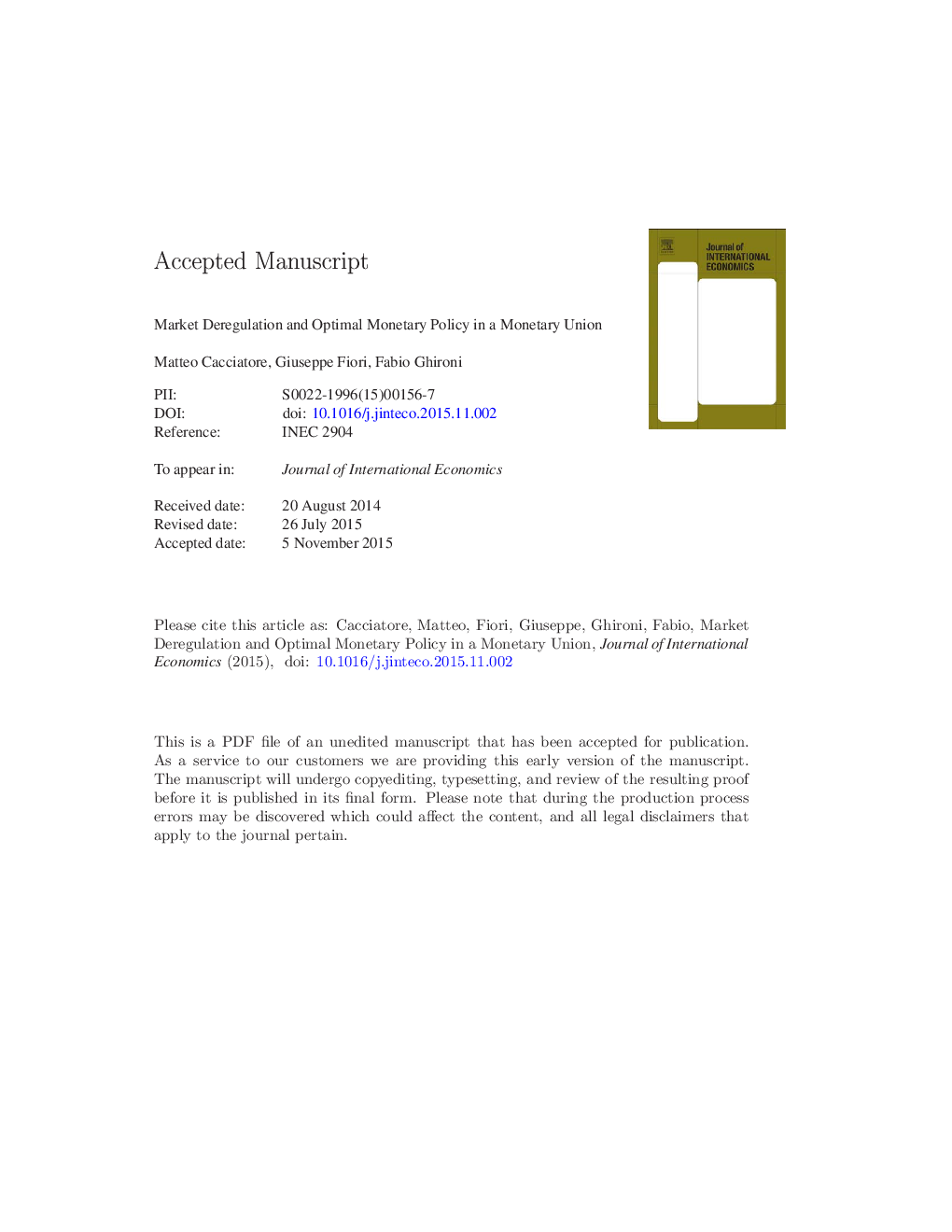| Article ID | Journal | Published Year | Pages | File Type |
|---|---|---|---|---|
| 7364114 | Journal of International Economics | 2016 | 48 Pages |
Abstract
This paper addresses the consequences of product and labor market deregulation for monetary policy in a two-country monetary union with endogenous product creation and labor market frictions. We show that when regulation is high in both countries, optimal policy requires significant departures from price stability both in the long run and over the business cycle. The adjustment to market reform requires expansionary policy to reduce transition costs, but deregulation reduces static and dynamic inefficiencies, making price stability more desirable once the transition is complete. International synchronization of reforms can eliminate policy tradeoffs generated by asymmetric deregulation.
Related Topics
Social Sciences and Humanities
Economics, Econometrics and Finance
Economics and Econometrics
Authors
Matteo Cacciatore, Giuseppe Fiori, Fabio Ghironi,
